Nine Symphony Musicians Taking a Well-Deserved Bow
by Richard A. Salkin
When the 2016-2017 season concludes, the Jacksonville Symphony bids a grateful farewell to nine cherished musicians who are retiring. For some, the transition is just a cesura, a musical pause; for others, it marks a page-turn or even a whole new movement. Together these nine accomplished artists have given Jacksonville audiences a total of 365 years of music-making.
“We’re deeply grateful to Claudia, Debby, Glynda, Jeanne, Lela, Lois, Merryn, Peter and Philip for their decades of consistent musicianship and dedication to their craft,” said CEO Robert Massey. “Together and individually they have helped bring the Jacksonville Symphony forward — day by day, season after season — as the region’s premiere cultural institution. They leave a legacy of excellence.”
In ensemble playing, musicians put their individuality aside to blend into a cohesive singular instrument, Music Director Courtney Lewis added. “These nine talented colleagues have spent decades bringing their own unique skills and hearts to the singular sound of the Jacksonville Symphony,” he said. “Each has contributed to our sound, our experience and the quality of the music we make. I have been honored to work with them, and I wish them every joy in the next phase of their lives.”
Merryn Ledbetter Corsat, principal viola
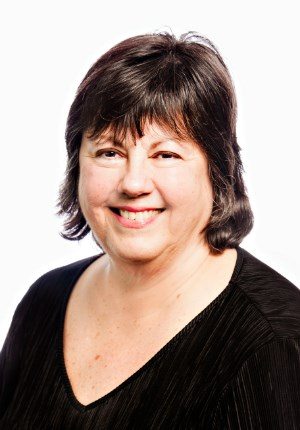 “Music is all I ever wanted to do,” Merryn said. Like many other musicians, she has played more than one instrument over the course of her career. She first joined the orchestra in 1968 as a violinist while studying piano at Jacksonville University. Six years later, she left to pursue a Master’s degree at the University of Wisconsin, Madison, where she switched to viola.
“Music is all I ever wanted to do,” Merryn said. Like many other musicians, she has played more than one instrument over the course of her career. She first joined the orchestra in 1968 as a violinist while studying piano at Jacksonville University. Six years later, she left to pursue a Master’s degree at the University of Wisconsin, Madison, where she switched to viola.
She returned to Jacksonville in 1978 and re-joined the Symphony as a violist. “I prefer to think of the viola as the voice of the soul,” she remarked, “rather than a show-off.”
Two years later, “the principal chair opened up, and I won the audition,” she said. While she still holds that position, Merryn has also served in various administrative roles, including Orchestra Committee Chair, Union Steward, Director of Orchestra Operations, and Personnel Manager.
Reflecting back, a few concerts stand out. “The most challenging piece I have encountered is the solo variation in Ginastera’s Variaciones Concertantes. It is full of awkward double stops and arpeggios that don’t bring out the best of the instrument or the player. The most rewarding concert for me, personally, was the opportunity to perform Strauss’ Don Quixote,” a tone poem that casts the solo viola as Sancho Panza. But her most memorable performance was with Luciano Pavarotti, in January 1989. “He was truly a presence.”
Merryn enjoys walking, jogging and cycling along the Baldwin Trail. “After retiring, I look forward to traveling with my husband. We have a small travel trailer, and have taken it to Montana and Wyoming several times, and once all the way to Alaska! I also look very much forward to having weekends off!”
Lois Elfenbein Gosa, violin
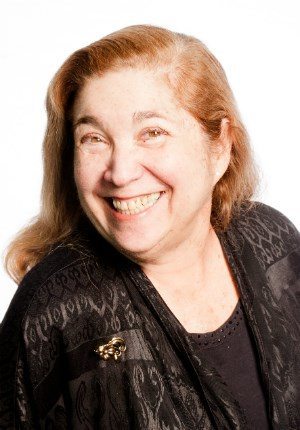 As the 60’s ended, Lois was excited to receive a contract to play with the Jacksonville Symphony. But before she could get here, the season was canceled. Nevertheless, she persisted: “I came anyway,” she said, and her decades-long career blossomed.
As the 60’s ended, Lois was excited to receive a contract to play with the Jacksonville Symphony. But before she could get here, the season was canceled. Nevertheless, she persisted: “I came anyway,” she said, and her decades-long career blossomed.
Born in Newark, New Jersey and raised in North Miami Beach, Lois was adaptable and tenacious from the beginning. “I played violin first and was studying piano,” she said. But at Miami Dade Junior College, “the orchestra director needed more viola players and offered me a scholarship to switch.” She went on to study violin at Florida State University.
She’s married to Dale Gosa, a former bassist with the Symphony currently pursuing a career as a luthier, repairing and restoring stringed instruments. Lois is also the mother of four children: David, Rebecca, Andrea and Elizabeth.
Rebecca followed in Lois’ footsteps and plays violin professionally. In fact, one standout moment was when they were stand-mates in a 2002 Starry Nights concert featuring Trisha Yearwood. Two years earlier, Lois joined with two of her daughters — Rebecca and Elizabeth — as well as retiring Symphony violinists Glynda Newton and Jeanne Majors — to play at the funeral of Alice Sager, a Symhpony concertmaster, who was a beloved mentor to them all.
Looking ahead, Lois said, “The music always goes on. I’ll always be making music. I also have some private students I’ll continue with.” But family tops her priority list. She’s looking forward to spending time with her husband, mother, children and grandchildren.
Deborah Heller, flute and piccolo
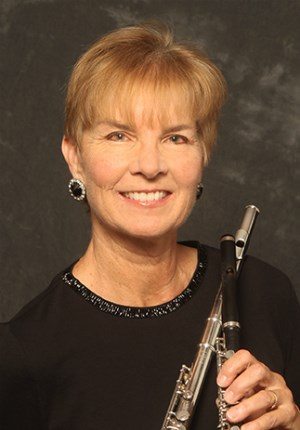 The highest notes usually come from the piccolo, and local audiences can thank Deborah for 42 years of them. With a degree in flute performance from FSU, she plays flute and piccolo.
The highest notes usually come from the piccolo, and local audiences can thank Deborah for 42 years of them. With a degree in flute performance from FSU, she plays flute and piccolo.
As a professional musician, she enjoys “a better than front row seat at concerts.” Reflecting on her retirement, Deborah said “I feel privileged to have been a member of this orchestra and to have been a part of the evolution into an outstanding ensemble.”
She’s keenly aware that people are often surprised at the quality of the Symphony’s performances. “People come to Jacksonville and experience shock and awe at what this orchestra can do. I wish the best to my dedicated colleagues as the bar continues to be raised.”
On a personal note, she adds “I want to thank my colleagues in the Jacksonville Symphony flute section, always supportive, and with whom I share a lifetime of musical memories.” Also on a personal note, Deborah advocates against the use of earbuds. “I would like to turn down the decibel level of modern life,” she said, urging people to avoid “the constant strafing of our eardrums.”
Deborah has rich and varied interests that don’t involve music. She enjoys swimming and snow skiing, along with “reining in Mother Nature (i.e. yard work) on our property, care and feeding of two dogs and a horse, and exploring state parks and forests on horseback.” Her bucket list includes an equestrian tour of Ireland.
Lela LaBarbera, violin
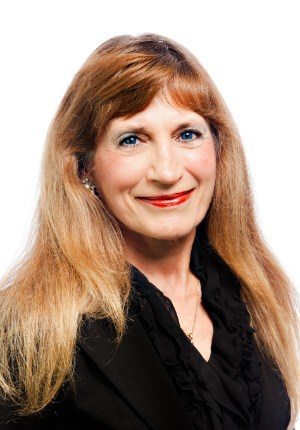 The first time Lela LaBarbera heard Rachmaninoff’s massive second symphony, she fell asleep. Today, “though I’ve heard a lot of great performances over the years, it’s my favorite,” she said. “At first I thought it was boring but I’ve recognized what a great piece it is.”
The first time Lela LaBarbera heard Rachmaninoff’s massive second symphony, she fell asleep. Today, “though I’ve heard a lot of great performances over the years, it’s my favorite,” she said. “At first I thought it was boring but I’ve recognized what a great piece it is.”
Born and raised in Dallas, Lela earned Bachelor’s and Master’s degrees in violin performance at the University of North Texas. “I was on the concert piano path when I was in high school,” she recalled, but the demanding travel schedule seemed like a downside. “I realized I didn’t want to devote my whole life to giving concerts. So I decided to become a symphony violinist. I could play professionally and still have a family life. That worked out really well.”
She and her husband Marty have a blended family of four children, ranging between age 17 and 39. “We have these two adorable Siberian Huskies and love them to death,” she said. “I love to cook and take 3-mile walks several times a week.”
Lela has a full life, with no radical changes planned after she retires. “I do love my church,” she said, “and I’m thinking about becoming more involved in the music there.”
Jeanne Majors, violin
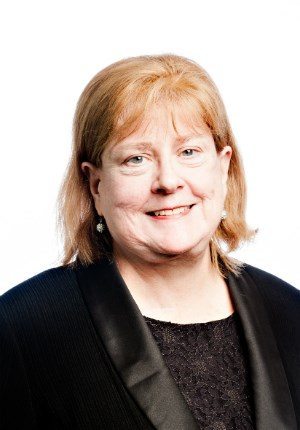 Jeanne led the second violin section as its principal player for about three decades, an experience she described as “my special joy,” before stepping down into the section. She also appreciates the opportunities over the course of her career to work with “so many musical directors (John Canarina, Willis Page, Roger Nierenberg, Fabio Mechetti, and now Courtney Lewis) as well as the fine guest conductors and outstanding performing artists over the years. I am very grateful to have a life’s career making music with so many colleagues.”
Jeanne led the second violin section as its principal player for about three decades, an experience she described as “my special joy,” before stepping down into the section. She also appreciates the opportunities over the course of her career to work with “so many musical directors (John Canarina, Willis Page, Roger Nierenberg, Fabio Mechetti, and now Courtney Lewis) as well as the fine guest conductors and outstanding performing artists over the years. I am very grateful to have a life’s career making music with so many colleagues.”
Her association with the Symphony started early. During her junior year in high school, Jeanne was concertmaster of the Jacksonville Symphony Youth Orchestra, and she still has fond memories of soloing in a 1964 performance of Bach’s A-minor Violin Concerto. One of the colleagues who was most helpful was former violinist Alice Sager, “one of the original members of the Symphony, a wonderful guide and mentor to so many of us who joined the orchestra in the mid 60’s and afterwards. She was always willing to impart special encouragement.” When Sager passed away in August, 2000, Jeanne was one of five violinists who performed at her funeral.
As she approaches retirement after 50 years in the orchestra, Jeanne will have a lot of activity on her plate. “I have projects around my home, which my parents built and I have lived in nearly always,” she said. And “I will continue to teach a few students.”
She’ll also remain active in the Prelude Chamber Music Camp and Festival, an organization she co-founded in 2002 to teach children and adults the joy of chamber music. She’ll be traveling extensively, too. “I have been lucky to travel quite a bit over the years. I look forward to exploring new parts of the world. This summer I am headed to Iceland for a true change of scenery.”
Claudia Minch, oboe & english horn
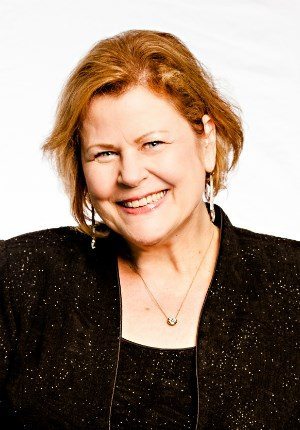 After 38 years with the Symphony, Claudia looks forward to “spending more time with my 90-year-old parents, who still attend as many concerts as they can…traveling to see my family…and spending more time with my hobby restoring antique dolls.” Claudia plays oboe and its instrumental cousin, the English Horn, which is similar but has a more haunting tone.
After 38 years with the Symphony, Claudia looks forward to “spending more time with my 90-year-old parents, who still attend as many concerts as they can…traveling to see my family…and spending more time with my hobby restoring antique dolls.” Claudia plays oboe and its instrumental cousin, the English Horn, which is similar but has a more haunting tone.
Among Claudia’s most memorable moments with the Symphony: “the nine Decembers that my daughter danced in the Nutcracker while I performed in the pit below; when we had Tom Stacey, English Horn player from the NY Philharmonic, as a soloist; when Victor Borge sat 10 feet away from me at the piano at the age of 91, doing his schtick.”
More recently, audiences had a chance to savor her playing during a Masterworks concert earlier this year — the program that included the Berlioz Roman Carnival Overture and the Ravel Piano Concerto. Both have notable English Horn solos. “It was probably one of the most emotional times for me,” she said. “These are beautiful solos, difficult in different ways, one with rich, noble and somber voice and the other with a warm, dreamy and plaintive tone that goes on and on. I love playing both of these solos because they are so expressive and passionate.”
Glynda Newton, violin
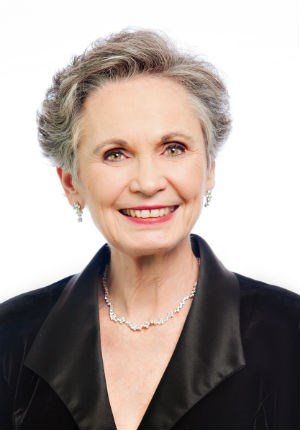 Music performance runs in Glynda Newton’s family. She’s married to Cliff Newton, who played principal trumpet with the Symphony for 32 years. Her mother played violin. So did her grandmother, for whom she was named. “She was a soloist with radio orchestras and social orchestras in the 1920’s and 30’s, traveling up and down the east coast,” she said proudly. “I have her violin, and it’s very well-traveled. It was an extraordinary thing she did.”
Music performance runs in Glynda Newton’s family. She’s married to Cliff Newton, who played principal trumpet with the Symphony for 32 years. Her mother played violin. So did her grandmother, for whom she was named. “She was a soloist with radio orchestras and social orchestras in the 1920’s and 30’s, traveling up and down the east coast,” she said proudly. “I have her violin, and it’s very well-traveled. It was an extraordinary thing she did.”
Both of Glynda’s children played in the Symphony’s Youth Orchestra. At a Major/Minor concert under Roger Nierenberg, she recalled, “we were all on stage together. My daughter did the Vaughn Williams Oboe Concerto.”
For Glynda, there’s something deeply rewarding about being at the center of the sound. “You feel the vibrations of all the instruments, you feel the music, through the floor and all around you. It’s an exquisitely wonderful experience.” She still remembers when the Symphony performed Stravinsky’s Petrushka under Willis Page. “Cliff played the part of Petrushka — a big part, that was wonderful,” she said. Another memorable time was the 1988-1989 season with Nierenberg conducting. “I had the opportunity to play with Luciano Pavarotti, Kiri Te Kanawa and Frederika Von Stade, all in the same season.”
Glynda is undecided about her next career. “I have so many interests, it’s hard to narrow them down,” she said. “I’ll definitely be promoting and performing with my salon orchestra, the Palm Court Society Orchestra.” There’s also some travel in her future. She and Cliff are fond of all things French, including the cuisine and culture, and they’re planning a trip this summer.
Philip Pan, concertmaster
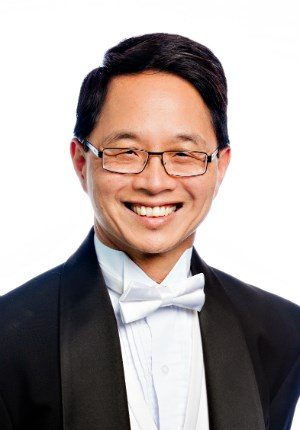 There’s more to being a Concertmaster than walking onstage and cuing the oboist to play an A. Philip has played “a constantly evolving role requiring continuing diligence as to how to best serve the conductor, one’s section, and the orchestra as a whole.”
There’s more to being a Concertmaster than walking onstage and cuing the oboist to play an A. Philip has played “a constantly evolving role requiring continuing diligence as to how to best serve the conductor, one’s section, and the orchestra as a whole.”
He has also served often as the Symphony’s resident violin soloist. “My favorite performances have been the most unusual repertoire,” he said, “such as Stravinsky’s Apollon Musagete and Lutoslawski’s Chain One.” Modern works have presented the greatest technical challenge: “Atonal contemporary works are less familiar to our diatonically trained ears, so require much more drilling and practice time. Many contemporary works also tend to have extremely complex and unusual rhythms.”
In all aspects of life, Philip has varied tastes and interests. He was a featured member of Canary in the Coalmine, and American folk band, he enjoys Mozart’s violin concertos as much as albums by Grandpa’s Cough Medicine. When he’s not practicing or performing, he’s running, hiking, cooking, skiing, fencing, tinkering with cars, studying philosophy and all things mechanical.
Of all the memorable performances in his career, perhaps the funniest occurred “many years ago, under a tent at Concert on the Green,” he related. “A gigantic flying cockroach than had been circling the tent ceiling landed on the shoulder of Ken Every, our timpanist. He was right in my line of sight. Ken (who is very athletic), let out a shriek, jumped over a chair and ran out of the tent, drumsticks waving in the air! Somehow we all kept on playing and made it to the end of the 1812 Overture, thought I had tears streaming down my cheeks from suppressed laughter.”
Philip said he’ll miss sitting with fellow violinist Melissa Barrett, “my lifelong co-pilot and friend.” He’s looking forward to “having my evenings and weekends back, seeing other shows, going out with friends and giving my violin-playing body parts a break.”
Peter Wright, principal clarinet
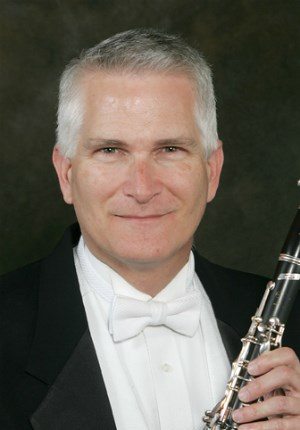 Peter has held the same remarkable post since 1975. That year “I was a senior at Jacksonville University when Willis Page hired me to be Principal Clarinetist,” he said. “I had just turned 20 and was fortunate to have played a few concerts the season before on auxiliary clarinets. I guess I had a good audition, since he took a chance on a youngster.”
Peter has held the same remarkable post since 1975. That year “I was a senior at Jacksonville University when Willis Page hired me to be Principal Clarinetist,” he said. “I had just turned 20 and was fortunate to have played a few concerts the season before on auxiliary clarinets. I guess I had a good audition, since he took a chance on a youngster.”
The intervening years have been filled with miraculous music (Bartok’s Miraculous Mandarin remains “the most difficult piece I’ve ever played with the orchestra.”); throughout his career Peter has soloed with the Symphony 12 times, in concertos by composers as diverse as Mozart, Rossini, Weber, Debussy, Finzi, Copland, Bozza, and Artie Shaw.
To celebrate his 30th anniversary season, in 2005, Peter soloed in the world premiere of Collateral Damage, a Concert for Clarinet & Orchestra by Nikola Resanovic — a performance he rates as his most epic, partly because the composer was in the audience.
Other stand-out moments in Peter’s career include dining with Benny Goodman after his concert with the orchestra in 1976, and participating in the Symphony’s Carnegie Hall performance (1998). One of the most emotional moments was when we lost our orchestra manager, Cecil Cole, to cancer. One of the most rewarding was when Jacoby Symphony Hall opened twenty years ago.
Peter is an avid runner, a Jaguars fan, and also a varsity-level roller coaster enthusiast. He’s looking forward to “riding more coasters and checking out this thing called Netflix.”

